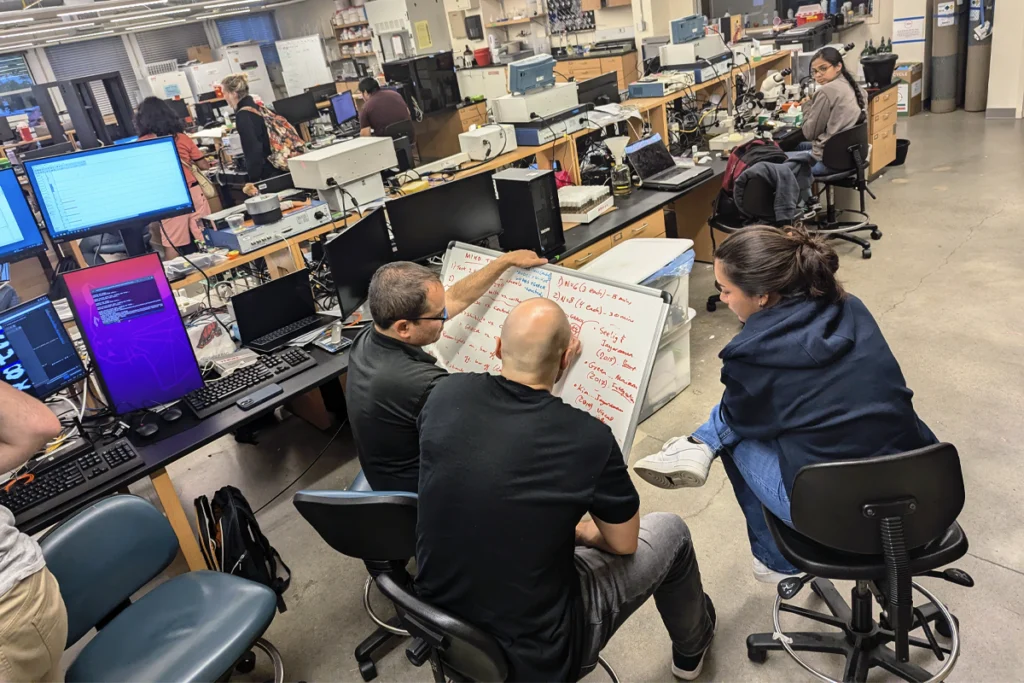
Six tips for postdoc success
Postdoctoral positions are relatively short, so starting out on the right foot can make all the difference. Researchers offer their advice for making that happen.
Like many newly minted Ph.D.s, Ayushe Sharma started a postdoctoral position this month. She knew that her new role, at Yale University, would be different from her time as a graduate student, but she also felt that her training over the past few years had positioned her well: She knew how to work hard, mentor trainees and set her own schedule.
As a result, she could hit the ground running. In her first week, she says, she made plans for her initial project and a list of training goals for the year.
But not all postdocs start out at that level of preparedness. Postdoc positions tend to have less structure than graduate school, says Eric Levine, professor of neuroscience at the University of Connecticut School of Medicine in Farmington. The measure of success is also much less clear going in, he adds, and a postdoc’s tenure in a lab is relatively short, so it is important to not waste time.
Spectrum asked Levine and other researchers for advice on how to get the most out of a postdoc experience. Here are some of their top tips.
1. Find a place to thrive. That could mean anything from being in a geographic location that suits your needs to working with a principal investigator (PI) with a compatible management style, says Amanda Kentner, professor of psychology at the Massachusetts College of Pharmacy and Health Sciences in Boston.
Figuring out whether a lab is the right fit starts with the interview process, she says. “Don’t be afraid to ask to meet with not just the students and technicians, but everyone in the lab,” she says. “Go meet the laboratory animal care personnel if you’re going to be doing animal work,” and talk with members of collaborating labs, she says. All those conversations will help paint a picture of the lab environment.
2. Clean the slate. It is not always possible, but having published some graduate work before starting a postdoctoral position can significantly lighten a postdoc’s workload, Sharma says. “If you haven’t written [those papers], you’re writing at night and on the weekend,” she says, which can make it more difficult to focus on new projects during the week.
3. Have a plan. Postdocs should “take a very honest stock” of their skills before starting a new position, Kentner says. “Identify things that you want to learn — and know why.”
Within the first six months, formally document these goals in an individual development plan, Levine advises. This can help postdocs establish a timeline for their projects, bring structure to their role and get the PI’s input early on. “It’s something you can refer back to,” Levine says, which can help keep both postdocs and PIs accountable as a project progresses.
4. Make a mark. Once settled in a new lab, postdocs should be selective about the work they ultimately take on, Levine says. “The best thing is to identify a project that they’re going to have some ownership of,” he says. Rather than getting plugged into an existing project, it can be beneficial to work on one that expands on a lab’s existing techniques, he adds — “something that will set themselves up to be independent and do something novel when they leave.”
As for metrics, publications are an important way for postdocs to signal their skills, Levine says. “The next step is going to be applying for jobs, whether it’s academia or industry,” he says, so having tangible work to point to is important. For researchers aiming for an academic job, first-author papers are preferable because they suggest that the postdoc did the bulk of the work. But for those who want to go into industry, he adds, having more experience as a contributing author who brought specific skills to a project can be useful, too.
5. Keep networking. Postdocs should continue to get to know everyone they can, Kentner says, including lab technicians, graduate students and undergraduates in the lab and in other labs. “By engaging with people across different career trajectories and levels, you’re going to get different perspectives,” she says. Having that network can be beneficial later in a career, whether a researcher stays in academia or moves to another field.
Another way to connect with others is to join a postdoc organization, Levine says. Many universities have postdoc groups that help researchers find others who can help them navigate this career stage. “Knowing that there’s a larger community,” he says, is always a good thing.
6. Prioritize mental and physical health. Finding time for hobbies and exercise is important, Sharma says. She arrives at the lab by 8 a.m. so that she can leave in time for an afternoon Pilates class. “That helps me work really hard throughout the day,” and keeping a structured daily schedule can help keep the work on track, she says.
Recommended reading

Why practical summer courses in neuroscience matter

In your New Year’s resolutions for 2025, consider public outreach

An eye for science: Q&A with Bryan W. Jones
Explore more from The Transmitter

Mitochondrial ‘landscape’ shifts across human brain

Expediting clinical trials for profound autism: Q&A with Matthew State
